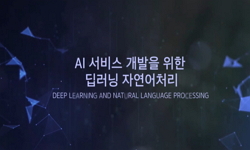The purpose of this study is to examine the philosophical background of Einstein’s (Albert Einstein, 1879~1955) religious view and its impact on his scientific thinking or scientific research. His influence on mankind as a natural scientist was such...
http://chineseinput.net/에서 pinyin(병음)방식으로 중국어를 변환할 수 있습니다.
변환된 중국어를 복사하여 사용하시면 됩니다.
- 中文 을 입력하시려면 zhongwen을 입력하시고 space를누르시면됩니다.
- 北京 을 입력하시려면 beijing을 입력하시고 space를 누르시면 됩니다.

아인슈타인의 종교관에 대한 사상적 배경과 그 영향에 대한 고찰 = A Study on the Philosophical Background of Einstein’s Religious View and Its Impact
한글로보기부가정보
다국어 초록 (Multilingual Abstract)
However, most people do not know that Einstein had a deep interest in religion and had a unique religious view of his own. He frequently mentions of “God,” “religion,” and “spirituality” in several letter correspondences with his acquaintences, interviews, and his writing. He had distinctive personal views of God and religion. To Einstein, religion should present cosmic mysteries and wonders and inspire his science research activities. Then in what religious view did the prominent science genious set his faith in? And what was Einstein’ definition of “God”? What is the ideological background of his religious view? Did his belief deeply inspire his scientific research and lead him to success in his activities? This study seeks to present answers to such questions.
Therefore, this paper first looks at the thoughts and ideas that influenced Einstein’s religious view (cosmic religion). Then it will examine how such thoughts and ideas impacted his religious view. Third, the paper will address how his ideological background affected his views on other religious views (Christianity). And last, it will present a critical view on whether his cosmic view had a positive influence on his “scientific thinking and research” which was the main objective of his belief.
The purpose of this study is to examine the philosophical background of Einstein’s (Albert Einstein, 1879~1955) religious view and its impact on his scientific thinking or scientific research. His influence on mankind as a natural scientist was such that the US magazine TIME named him among the most important people of the 20th century. To Koreans, from the young to the old, he is well-known as a world famous natural scientist.
However, most people do not know that Einstein had a deep interest in religion and had a unique religious view of his own. He frequently mentions of “God,” “religion,” and “spirituality” in several letter correspondences with his acquaintences, interviews, and his writing. He had distinctive personal views of God and religion. To Einstein, religion should present cosmic mysteries and wonders and inspire his science research activities. Then in what religious view did the prominent science genious set his faith in? And what was Einstein’ definition of “God”? What is the ideological background of his religious view? Did his belief deeply inspire his scientific research and lead him to success in his activities? This study seeks to present answers to such questions.
Therefore, this paper first looks at the thoughts and ideas that influenced Einstein’s religious view (cosmic religion). Then it will examine how such thoughts and ideas impacted his religious view. Third, the paper will address how his ideological background affected his views on other religious views (Christianity). And last, it will present a critical view on whether his cosmic view had a positive influence on his “scientific thinking and research” which was the main objective of his belief.
국문 초록 (Abstract)
미국의 『타임』(TIME) 지가 아인슈타인을 20세기를 대표하는 인물로 선정할 정도로, 아인슈타인은 자연과학자로서 인류에 많은 영향을 끼쳤다. 국내에서는 초등학생부터 성인에 이르기까지 많은 사람들이 그가 세계적인 자연과학자라는 것을 알고 있다.
그러나 아인슈타인이 누구보다도 종교에 대하여 관심이 있었고 또 자신만의 독특한 종교를 가지고 있었다는 것에 대해서는 대부분의 사람들은 모르고 있다. 아인슈타인은 지인과의 여러 차례의 편지 왕래와 여러 인터뷰를 통해서 그리고 그의 저서를 통해 ‘신’과 ‘종교’ 그리고 ‘영성’에 대하여 자주 언급하였다. 아인슈타인은 자신만의 독특한 신관과 종교관을 가지고 있었다. 무엇보다도 아인슈타인은 자신의 종교 목적을 우주적 신비감과 황홀감을 가져다주고 과학연구 활동에 깊은 영감을 가져다주어야 한다는 것으로 삼았다.
그렇다면 세계적으로 저명한 천재 과학자 아인슈타인이 생각하고 있는 종교는 어떤 종교일까? 그리고 그가 생각하는 ‘신’의 의미는 무엇일까? 그의 종교에는 어떤 사상적 배경을 가지고 있는가? 과연 아인슈타인은 자신의 종교를 통해 과학연구 활동에 깊은 영감을 받고 성공적인 연구 활동을 했는가? 본 논문은 이러한 질문들에 대한 답을 구하고자 한다.
따라서 본 논문은 첫째로는 아인슈타인의 종교관(우주종교)에 막대한 영향을 미친 주요 사상에 대하여 살펴볼 것이다. 그리고 둘째로는 이러한 사상이 아인슈타인의 종교관에 어떻게 영향을 미쳤는지를 살펴본다. 셋째로는 이러한 사상적 배경이 타종교(기독교)에 대한 아인슈타인의 시각에 어떠한 영향을 미쳤는지도 살펴볼 것이다. 그리고 마지막으로 자신의 우주종교의 주요 목적이었던 ‘과학적 사고 또는 과학 연구’에아인슈타인 자신에게 과연 긍정적으로 작용하였는지에 대하여 비판적으로 고찰할 것이다.
본 연구의 목적은 아인슈타인(Albert Einstein, 1879~1955)의 종교관과 그에 대한사상적 배경을 살펴보고, 그의 종교 사상이 그의 과학적 사고 또는 과학적 연구에어떠한 영향을 미쳤는지를 고찰하...
본 연구의 목적은 아인슈타인(Albert Einstein, 1879~1955)의 종교관과 그에 대한사상적 배경을 살펴보고, 그의 종교 사상이 그의 과학적 사고 또는 과학적 연구에어떠한 영향을 미쳤는지를 고찰하는 데 있다.
미국의 『타임』(TIME) 지가 아인슈타인을 20세기를 대표하는 인물로 선정할 정도로, 아인슈타인은 자연과학자로서 인류에 많은 영향을 끼쳤다. 국내에서는 초등학생부터 성인에 이르기까지 많은 사람들이 그가 세계적인 자연과학자라는 것을 알고 있다.
그러나 아인슈타인이 누구보다도 종교에 대하여 관심이 있었고 또 자신만의 독특한 종교를 가지고 있었다는 것에 대해서는 대부분의 사람들은 모르고 있다. 아인슈타인은 지인과의 여러 차례의 편지 왕래와 여러 인터뷰를 통해서 그리고 그의 저서를 통해 ‘신’과 ‘종교’ 그리고 ‘영성’에 대하여 자주 언급하였다. 아인슈타인은 자신만의 독특한 신관과 종교관을 가지고 있었다. 무엇보다도 아인슈타인은 자신의 종교 목적을 우주적 신비감과 황홀감을 가져다주고 과학연구 활동에 깊은 영감을 가져다주어야 한다는 것으로 삼았다.
그렇다면 세계적으로 저명한 천재 과학자 아인슈타인이 생각하고 있는 종교는 어떤 종교일까? 그리고 그가 생각하는 ‘신’의 의미는 무엇일까? 그의 종교에는 어떤 사상적 배경을 가지고 있는가? 과연 아인슈타인은 자신의 종교를 통해 과학연구 활동에 깊은 영감을 받고 성공적인 연구 활동을 했는가? 본 논문은 이러한 질문들에 대한 답을 구하고자 한다.
따라서 본 논문은 첫째로는 아인슈타인의 종교관(우주종교)에 막대한 영향을 미친 주요 사상에 대하여 살펴볼 것이다. 그리고 둘째로는 이러한 사상이 아인슈타인의 종교관에 어떻게 영향을 미쳤는지를 살펴본다. 셋째로는 이러한 사상적 배경이 타종교(기독교)에 대한 아인슈타인의 시각에 어떠한 영향을 미쳤는지도 살펴볼 것이다. 그리고 마지막으로 자신의 우주종교의 주요 목적이었던 ‘과학적 사고 또는 과학 연구’에아인슈타인 자신에게 과연 긍정적으로 작용하였는지에 대하여 비판적으로 고찰할 것이다.
참고문헌 (Reference)
1 스피노자, B, "에티카" 도서출판 피앤비 2011
2 NHK 아인슈타인 팀, "아인슈타인의 세계1: 천재 과학자의 초상" 고려원미디어 1993
3 번스틴, 제리미, "아인슈타인: 생애, 학문, 사상" 전파과학사 1992
4 권오대, "아인슈타인 하우스" 동연 2014
5 캐런, 폭스, "아인슈타인 A to Z" 도서출판 성우 2005
6 Pais, Abraham, "신화는 계속되고: 아인슈타인의 삶과 사상" 범한서적 1996
7 스피노자, B, "신학정치론" 비홍 출판사 2013
8 아인슈타인, "만년의 회상" 민성사 2000
9 김영식, "과학사신론" 다산출판사 2011
10 Viereck, George Sylvester, "What Life Means to Einstein" 1929
1 스피노자, B, "에티카" 도서출판 피앤비 2011
2 NHK 아인슈타인 팀, "아인슈타인의 세계1: 천재 과학자의 초상" 고려원미디어 1993
3 번스틴, 제리미, "아인슈타인: 생애, 학문, 사상" 전파과학사 1992
4 권오대, "아인슈타인 하우스" 동연 2014
5 캐런, 폭스, "아인슈타인 A to Z" 도서출판 성우 2005
6 Pais, Abraham, "신화는 계속되고: 아인슈타인의 삶과 사상" 범한서적 1996
7 스피노자, B, "신학정치론" 비홍 출판사 2013
8 아인슈타인, "만년의 회상" 민성사 2000
9 김영식, "과학사신론" 다산출판사 2011
10 Viereck, George Sylvester, "What Life Means to Einstein" 1929
11 Spinoza, de Baruch, "Tractatus Theologico-Politicus" Forgotten Books 2012
12 Spinoza, de Baruch, "The collected Works of Spinoza, Volume Ⅱ" Princeton University Press 2016
13 Einstein, Albert, "The World As I See It" Philosophical Library 1949
14 Brian, Denis, "The Unexpected Einstein: The Real Man Behind the Icon" John wiley & Sons, Inc 2005
15 Einstein, Albert, "The Ultimate Quotable Einstein" Princeton University Press 2011
16 Einstein, Albert, "The Quotable Einstein" Princeton University Press 1996
17 Einstein, Albert, "Out of My Later Years" Castle Books 2005
18 Lamprecht, P. Sterling, "Our Philosophical Traditions: A Brief History of Philosophy in Western Civilization" Appleton-Century-Crofts, Inc 1955
19 Einstein, Albert, "Ideas and Opinions" The Modern Library 1994
20 Stanley, Matthew, "Galileo Goes to Jail and Other Myths about Science and Religion" Harvard University Press 2009
21 Spinoza, de Baruch, "Ethica" The Perfect Library 2014
22 Isaacson, Walter, "Einstein: His Life and Universe" Simon & Schuster 2007
23 Walter Isaacson, "Einstein: His Life and Universe" Simon & Schuster 2007
24 Einstein, Albert, "Einstein on Cosmic Religion and Other Opinions and Aphorisms" Dover Publications 2009
동일학술지(권/호) 다른 논문
-
- 21세기기독교사회문화아카데미
- 서혜란
- 2018
- KCI등재
-
개척교회 목회자의 행복감에 영향을 미치는 목회변인 연구
- 21세기기독교사회문화아카데미
- 조운희
- 2018
- KCI등재
-
파머의 공동체 이론을 기반으로 하는 교육공동체 구성원들 간의 ‘상호연결성’ 회복에 관한 연구
- 21세기기독교사회문화아카데미
- 심영환
- 2018
- KCI등재
-
기드온 시대의 바알 숭배 연구- 사사기 6:25 ~ 32을 중심으로
- 21세기기독교사회문화아카데미
- 장석정
- 2018
- KCI등재
분석정보
인용정보 인용지수 설명보기
학술지 이력
| 연월일 | 이력구분 | 이력상세 | 등재구분 |
|---|---|---|---|
| 2027 | 평가예정 | 재인증평가 신청대상 (재인증) | |
| 2021-01-01 | 평가 | 등재학술지 유지 (재인증) |  |
| 2018-01-01 | 평가 | 등재학술지 유지 (등재유지) |  |
| 2015-01-01 | 평가 | 등재학술지 선정 (계속평가) |  |
| 2013-01-01 | 평가 | 등재후보 1차 PASS (등재후보1차) |  |
| 2011-01-01 | 평가 | 등재후보학술지 선정 (신규평가) |  |
학술지 인용정보
| 기준연도 | WOS-KCI 통합IF(2년) | KCIF(2년) | KCIF(3년) |
|---|---|---|---|
| 2016 | 0.74 | 0.74 | 0.59 |
| KCIF(4년) | KCIF(5년) | 중심성지수(3년) | 즉시성지수 |
| 0.52 | 0.46 | 0.558 | 0.46 |




 KCI
KCI KISS
KISS






